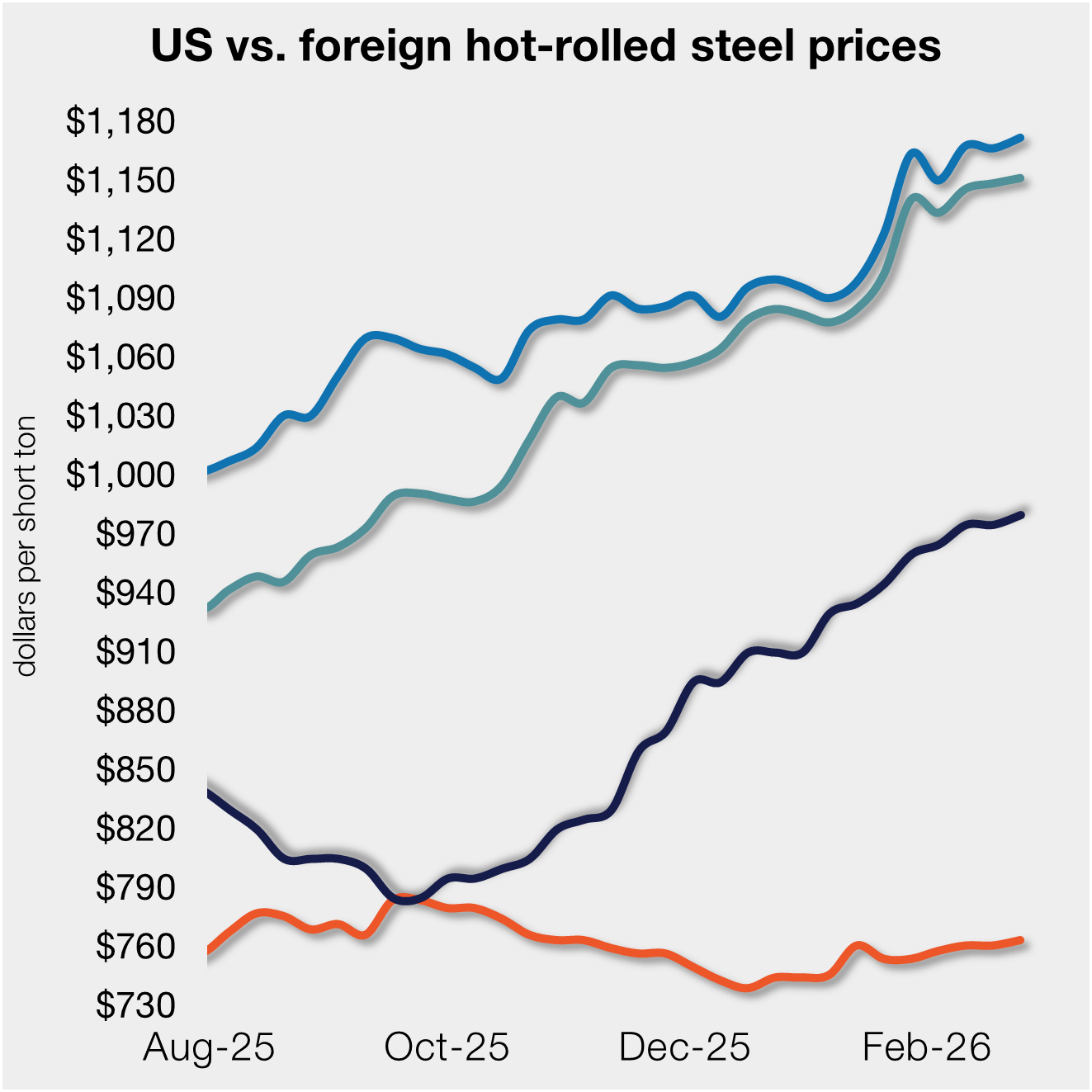Prices

June 10, 2025
Brazilian pig iron prices fail to rise
Written by Stephen Miller
The Brazilian pig iron trade was waiting for the US scrap market to form in June before accepting offers made by US buyers.
As previously reported, the US scrap market traded sideways for June shipments. And there was some debate on where scrap prices would trend from here.
For pig iron in May, the raw material suffered a $30-35 metric ton (mt) price decline. Producers in Brazil were hoping prices would stabilize or possibly rise in June for July shipments. However, this did not happen.
According to news from one of the largest channels in Brazil, a confirmed a sale was made to the US at a price of $401/mt FOB Vitoria. The freight is reported at $30/mt, which equates to $431/mt CFR US port.
This is drop of ~$10/mt from their last sale. However, not all producing channels have accepted this price reduction.
SMU spoke to a US trader who said he expects pig iron prices to be subdued over the summer months. He cited muted demand, sideways scrap pricing, and summer maintenance outages at EAF steelmakers.
Another source in Brazil SMU spoke to offered a different view on future movements.
The source said he met with two producers who have not sold anything this month. He said both indicated they are not sellers at this new pricing level offered by American mills. Their domestic market sales have been off and the currency exchange rate with the weaker USD is also hurting.
Rather than accept price levels that do not allow their plants to make a profit, they will cease production for a period of time. This will give them a chance to perform maintenance and reduce labor costs. During this time, they will see if they will receive better prices.
These producers noted US steel prices have risen and scrap prices have stablized. They feel pig iron prices should not be scapegoated with continually down numbers.
But as the US scrap industry has long learned, despite having sympathies for the Brazilian position, the steelmakers always try to buy materials at the cheapest price practical.
In today’s tariff-riddled market, the costs for US buyers have severely increased. So, it is hard to blame US mills for trying to reduce costs for this product.
This is another example of the tariffs impeding the trade flows of raw materials upon which US manufacturers depend.
Based on this confirmed sale at $431/mt CFR, the spread between #1 Busheling and pig iron has narrowed on a delivered works basis.
The spread for the Chicago area mills is ~$62 per gross ton (gt) based upon the busheling price for June at $430/gt.
However, adding the “reciprocal” tariff of 10% raises the input cost by $40 to ~$532/gt for a total premium of $102/gt.
For shipments to the mills in the Lower Mississippi region, the spread is less due to lower logistical costs. This premium for pig iron over #1 Busheling is $35/gt, but the addition of the tariff increases the premium to $75/gt.







